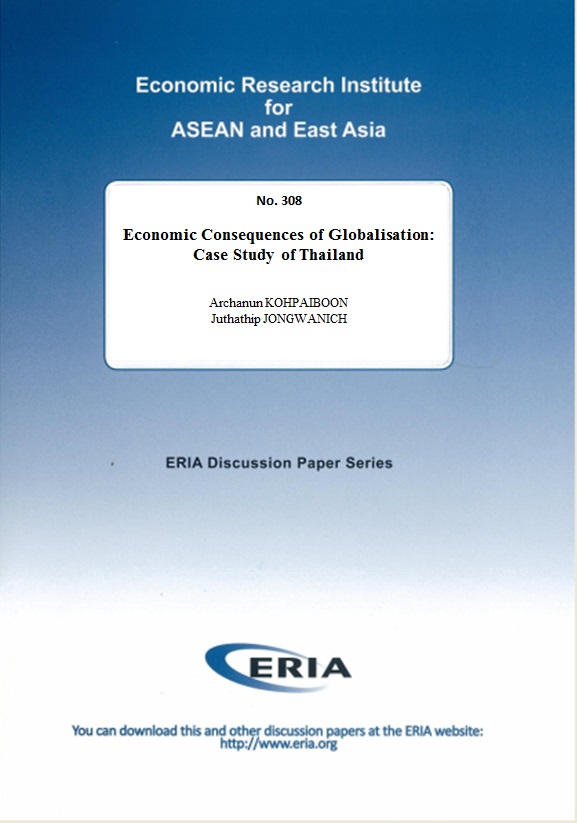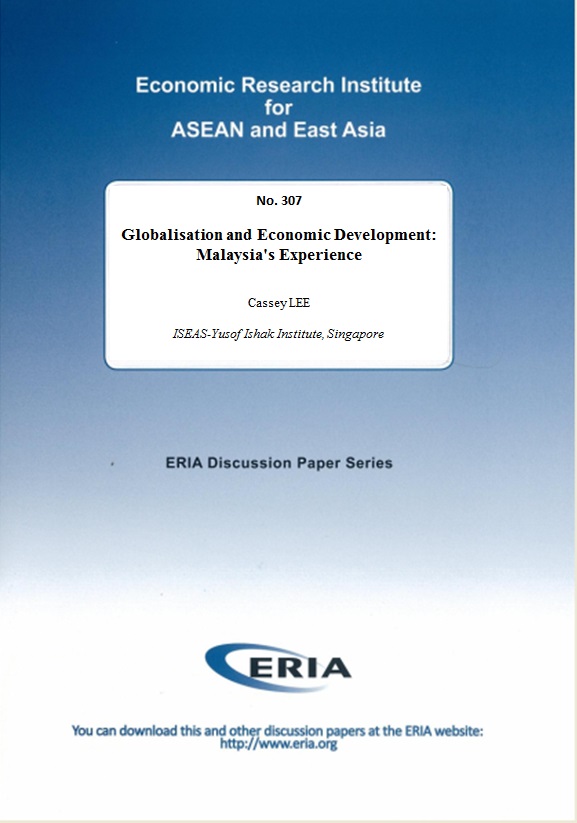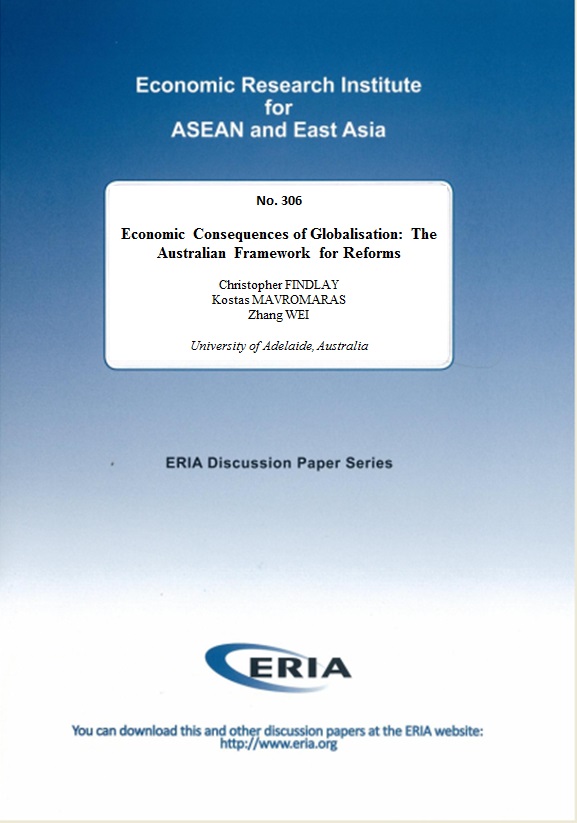Economic Consequences of Globalisation: Case Study of Thailand

Date:
26 December 2019Category:
Thailand, Investment, TradeType:
Discussion PapersTags:
trade, investment, globalisation, ThailandPrint Article:
The paper reviews empirical works examining the effect of globalisation in Thailand, beginning with a discussion of its integration into the economy. Three drivers of economic globalisation are emphasised: international trade, foreign direct investment, and cross-border labour mobility. The findings point to globalisation’s potential to create a favourable economic impact. Opening up to international trade could promote productivity and drive economic growth. Large foreign direct investment inflows enticed by export-oriented industrialisation are likely to generate horizontal technological spillovers within a given industry; vertical spillovers through the linkages were not a robust result. There is no evidence that employing foreign workers retards firm productivity; rather, the opposite is the case. Well-performing firms are in a position to attract foreign workers and maintain production capacity. Global production sharing (GPS) does not necessarily mean the participating countries are trapped at the low end of the quality ladder. The Thai experience supports the case for further globalising its economy. Any possible side effects of globalisation can be mitigated by other policies such as strengthening the social safety net.
Economic Consequences of Globalisation: Case Study of Thailand
Related Discussion Papers
The Economic Consequences of Globalisation in the United States
Processing Trade, Trade Liberalisation, and Opening Up China's Miracle of International Trade
Economic Consequences of Globalisation: The Australian Framework for Reforms
Economic Consequences of Trade and Investment Liberalisation: The Case of Viet Nam
Globalisation and Economic Development: Malaysia's Experience
The Impact of Economic Globalisation on Firm Performance and the Labour Market: Evidence from Japan




